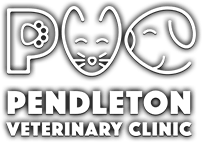Is your four-legged friend overdue for veterinary care? If so, you may want to schedule an appointment right away. Proper veterinary care is crucial to your pet’s health and well-being. An Anderson, IN vet discusses taking your furry friend to the vet in this article.
Puppies and Kittens
Baby animals need to come in a few times during that crucial first year. Little Fido and Baby Fluffy will need to be microchipped, spayed or neutered, and given their initial exams and vaccinations. This is also the time to get your tiny (or not so tiny) furball started on dental care and parasite control.
Adult Pets
We love watching puppies and kittens grow into healthy, happy dogs and cats! Once your pet is fully grown, they’ll need to come at least in once a year. The focus at this stage of your pet’s life is really on wellness care. Keeping your furry buddy up to date with exams, vaccinations, and parasite control, and providing proper dental care, will reduce the risk of them contracting deadly diseases or parasites, such as rabies and heartworm. Follow your vet’s recommended appointment schedule.
The Golden Years
Your pet’s senior years are a very beautiful and special time. Your furry pal may need to come in more frequently in their golden years, so your vet can check for signs of developing health problems. At home, watch for signs of sickness. If your pet develops a medical issue, such as diabetes or hip dysplasia, your vet will be able to offer treatment options and updated diet and home care advice. You’d be surprised at how many ways there are to help keep our animal companions comfortable as they age.
Lifestyle
Your pet’s lifestyle and activities will also play a role in determining how often they should come in. For example, cats that go outdoors should come in more often than indoor kitties . This is because outdoor kitties are more prone to injuries than indoor cats. They’re also are more exposed to parasites.
Tips
At all stages of your pet’s life, it’s important to watch for signs of sickness, such as vomiting, diarrhea, lethargy, and lack of appetite. Also, don’t be afraid to ask questions about your pet’s diet or care needs. That’s what we’re here for!
Please contact us, your Anderson, IN veterinary clinic, anytime. We’re dedicated to providing excellent care!









